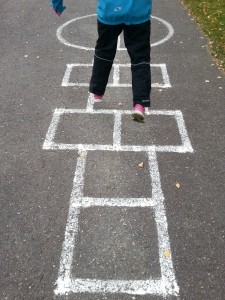 Kids across the nation are back to school — and that means also back to completing math worksheets, memorizing spelling words and writing book reports. In fact, there is solid evidence that schools are requiring more formal academic work at younger ages.
Kids across the nation are back to school — and that means also back to completing math worksheets, memorizing spelling words and writing book reports. In fact, there is solid evidence that schools are requiring more formal academic work at younger ages.
A study published earlier this year titled“Is kindergarten the new first grade?” found in recent years kindergarten students spend more time on teacher-directed math and reading instruction, and less time on art, music, science and child-selected activities. Is this academic focus what young children need?
The research suggests the answer is no. A broad body of evidence finds that young children need more play time to succeed in school and life — both with their peers and with adults.
For starters, the research shows that play helps prepare children to learn to read and write. One broad analysis published in the American Journal of Play finds strong evidence of the relationship between free play and literacy skills such as recognizing letters and numbers, understanding the elements of spoken language, writing skills and remembering lists or sets of objects. Another analysis published in 2013 explains when children guide and direct their play under adult supervision, it helps them to develop language skills and a love of learning.
Early childhood education programs that focus on these types of social and emotional skills help children becomes better learners and better citizens. A meta-analysis published in the Journal of Psychology found that children who attended preschool programs focused on social and emotional development were less likely to engage in antisocial behaviors such as breaking the rules, physical aggression, cheating and stealing later in life.
More importantly, playing helps children develop “non-cognitive” skills — such as self-discipline, curiosity and paying attention — that are important predictors of whether children can be successful later in life. One of the leading experts in this field is an economist at the University of Chicago named James Heckman. His work has found that these soft skills are essential in succeeding in school, securing a good job, and even building a successful marriage. Heckman research has found that children begin to learn these skills in preschool and elementary school.
There is a broad base of research that shows teaches can help students develop skills such as self-efficacy, motivation and social skills, and that focusing on these skills can help students succeed in school and in their adult lives.
What does all of this mean? It’s not important whether your preschool child can recite the alphabet or whether your kindergartener is doing basic math equations. The focus on crafts to make the perfect Thanksgiving centerpiece or that family science fair project will not help your young learner succeed in life.
New York Times best-selling author Robert Fulghum wrote a book in 1986 titled All I Really Need To Know, I Learned In Kindergarten. The book begins with a list of kindergarten lessons including “Share everything,” “Say you’re sorry when you hurt somebody” and “Be aware of wonder.” While Fulghum is not an education scholar, it turns out that he was onto something. Three decades later, research shows that these are the lessons that children need to learn early on.



Fulghum was definitely on to something.
Kids learn so much from playing games. It’s a shame that schools are focusing more on more on math, reading, and writing in kindergarten instead of letting kids learn the way they need to learn most: social skills and emotional intelligence.
Striking a good balance between work time and play time seems to be the key. Each one improves the quality of the other.